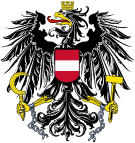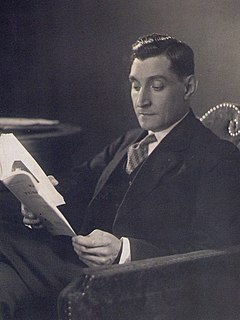| This article is part of a series on the |
| Politics of Austria |
|---|
 |
|
|
The Styrian Farmers' Party (German : Steirische Bauernpartei) was a political party in Austria.
| This article is part of a series on the |
| Politics of Austria |
|---|
 |
The Styrian Farmers' Party (German : Steirische Bauernpartei) was a political party in Austria.
The only election contested by the party was the 1919 Constitutional Assembly elections, [1] in which it received 1.6% of the national vote and won three seats. [2] The party did not contest the elections the following year.
The Greens of Andorra is a green political party in Andorra.

General elections were held in Sweden on 20 September 1964. The Swedish Social Democratic Party remained the largest party, winning 113 of the 233 seats in the Second Chamber of the Riksdag. Tage Erlander's Social Democratic government was returned to power.

Parliamentary elections were held in Russia on 12 December 1993. They were the first parliamentary elections in post-Soviet Russia and the last to the Federation Council, with future members appointed by provincial legislatures and governors.

Parliamentary elections were held in Norway in 1891. The result was a victory for the Liberal Party, which won 63 of the 114 seats in the Storting. The Conservative Party and the Moderate Liberal Party contested the elections in an alliance, although separate lists were used in some constituencies.

Parliamentary elections were held in Bulgaria on 24 December 1939, although voting continued in some areas into January 1940. The elections were officially held on a non-partisan basis with the Bulgarian Agrarian National Union and Bulgarian Communist Party banned, and in a process tightly controlled by Tsar Boris III, by then the real power in the country. However, candidates representing parties did contest the elections. Pro-government candidates won a majority of seats. Voter turnout was 67.2%.

Parliamentary elections were held in Hungary on 25 and 26 January 1920. However, they were only held in 164 districts. After the Treaty of Trianon was signed, the 44 districts previously occupied by Romania voted between 13 June and 5 July, whilst the 11 districts occupied by Serbia did not vote until 30 and 31 October 1921. The election was held with compulsory voting. In protest at this and other changes to the franchise that left 60% of the voting age population unable to vote, the Hungarian Social Democratic Party boycotted the elections, and called for its supporters to cast invalid votes, resulting in an unusually high number of blank or invalid votes - 11.8% in the January elections and over 20% in Budapest and other major cities.

Parliamentary elections were held in Hungary between 31 March and 7 April 1935. The result was a victory for the Party of National Unity, which won 164 of the 245 seats in Parliament. Gyula Gömbös remained Prime Minister.

Parliamentary elections were held in Latvia on 6 and 7 October 1928. The Latvian Social Democratic Workers' Party remained the largest party, winning 25 of the 100 seats.

General elections were held in Liechtenstein on 11 March 1918, with a second round on 18 March. They were the first elections held in the country contested by political parties, as the Christian-Social People's Party and Progressive Citizens' Party had been founded that year. The Progressive Citizens' Party emerged as the largest in the Landtag, winning seven of the 12 elected seats.

General elections were held in Liechtenstein on 15 February 1953. The Progressive Citizens' Party won eight of the 15 seats in the Landtag, but remained in coalition with the Patriotic Union. This was the first and only election contested by the Workers' and Peasants' Party.

General elections were held in Liechtenstein on 25 March 1962. The Progressive Citizens' Party won eight of the 15 seats in the Landtag, but remained in coalition with the Patriotic Union. This was the first election contested by the Christian Social Party.

Constituent Assembly elections were held in Portugal on 28 May 1911, following a coup in October 1910. The result was a victory for the Portuguese Republican Party, which won 229 of the 234 seats.

Parliamentary elections were held in Portugal on 11 May 1919. The three main parties that boycotted the 1918 elections returned to contest the elections. The result was a victory for the Democratic Party, which won 86 of the 163 seats in the House of Representatives and 36 of the 71 seats in the Senate.

Parliamentary elections were held in Portugal on 16 December 1934, the first following the establishment of the one-party state known as the Estado Novo. The National Union was the only party to contest the elections, and no opposition candidates were allowed to run. It subsequently won all seats in the National Assembly, three of which were taken by women.

Parliamentary elections were held in Portugal on 30 October 1938. The country was a one-party state at the time and the National Union was the only party to contest the elections, with no opposition candidates allowed to run.

Parliamentary elections were held in Portugal on 1 November 1942. The country was a one-party state at the time and the National Union was the only party to contest the elections, with no opposition candidates allowed to run.

The United Labour Social Democratic Party was a political party in Bulgaria.
The Economic Group was a political party in Estonia.
The Tenants' Union was a political party in Estonia.

The Agrarian Union Party was a political party in Romania.